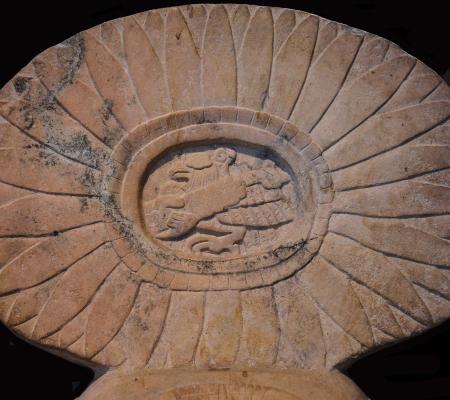Maya inscriptions of the Early Classic period refer to a key historical individual named Owl Striker, identified by Stuart over two decades ago as a possible ruler of Teotihuacan. Since that time Owl Striker's role has become the subject of controversy in debates about the nature of Teotihuacan-Maya interactions and of political rule at Teotihuacan. This talk presents a new look at Striker Owl’s history, presenting new discoveries that affirm his status as a ruler of Teotihuacan between 374 and 439 CE. He was also a major figure of Mesoamerican history, wielding great influence in the distant Maya lowlands. Owl Striker's long reign may be discernible in the archaeological record of Teotihuacan, related to political and ideological transformations at beginning of that site's Early Xolalpan phase.
David Stuart is the David and Linda Schele Professor of Mesoamerican Art and Writing at the University of Texas at Austin. He received his PhD in Anthropology from Vanderbilt University in 1995, and taught at Harvard University for eleven years before arriving at UT Austin in 2004, where he now teaches in the Department of Art and Art History. His interests in the traditional cultures of Mesoamerica are wide-ranging, but his primary research focuses is the archaeology and epigraphy of ancient Maya civilization, and for the past three decades he has been very active in the decipherment of Maya hieroglyphic writing. Over the past two decades his major research has centered on the art and epigraphy at Copan (Honduras), Palenque (Mexico), Piedras Negras, La Corona, and San Bartolo (Guatemala). Stuart’s early work on the decipherment of Maya hieroglyphs led to a MacArthur Fellowship (1984-1989). His books include Palenque: Eternal City of the Maya (Thames and Hudson), and most recently The Order of Days (Random House), a popular account of ancient Maya calendars and cosmology. Stuart is also currently the director of The Mesoamerica Center at the University of Texas at Austin, which fosters multi-disciplinary studies on ancient American art and culture. In addition, he oversees the activities of Casa Herrera, UT’s academic research center in Antigua, Guatemala, devoted to studies in the art, archaeology and culture of Mesoamerica.


